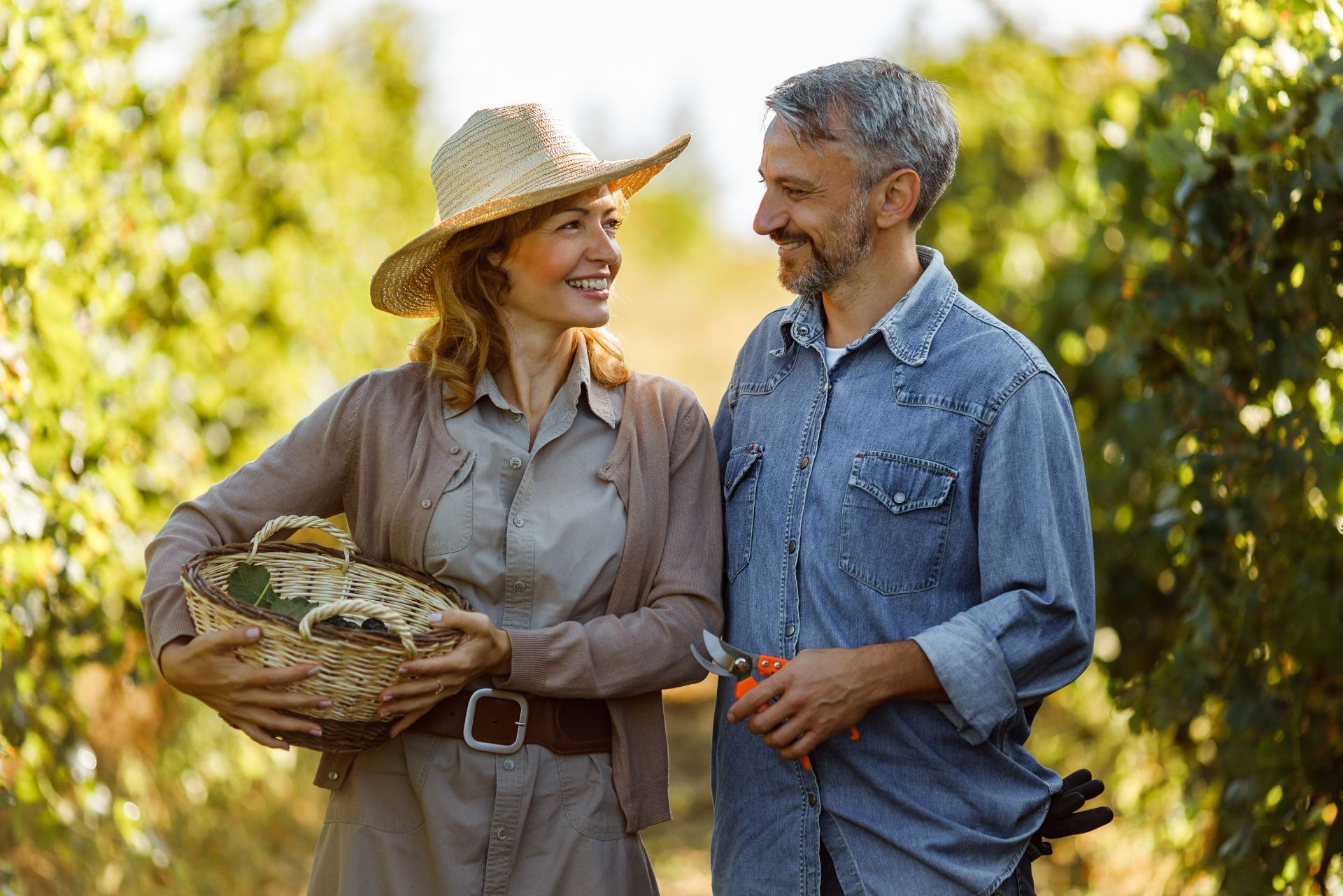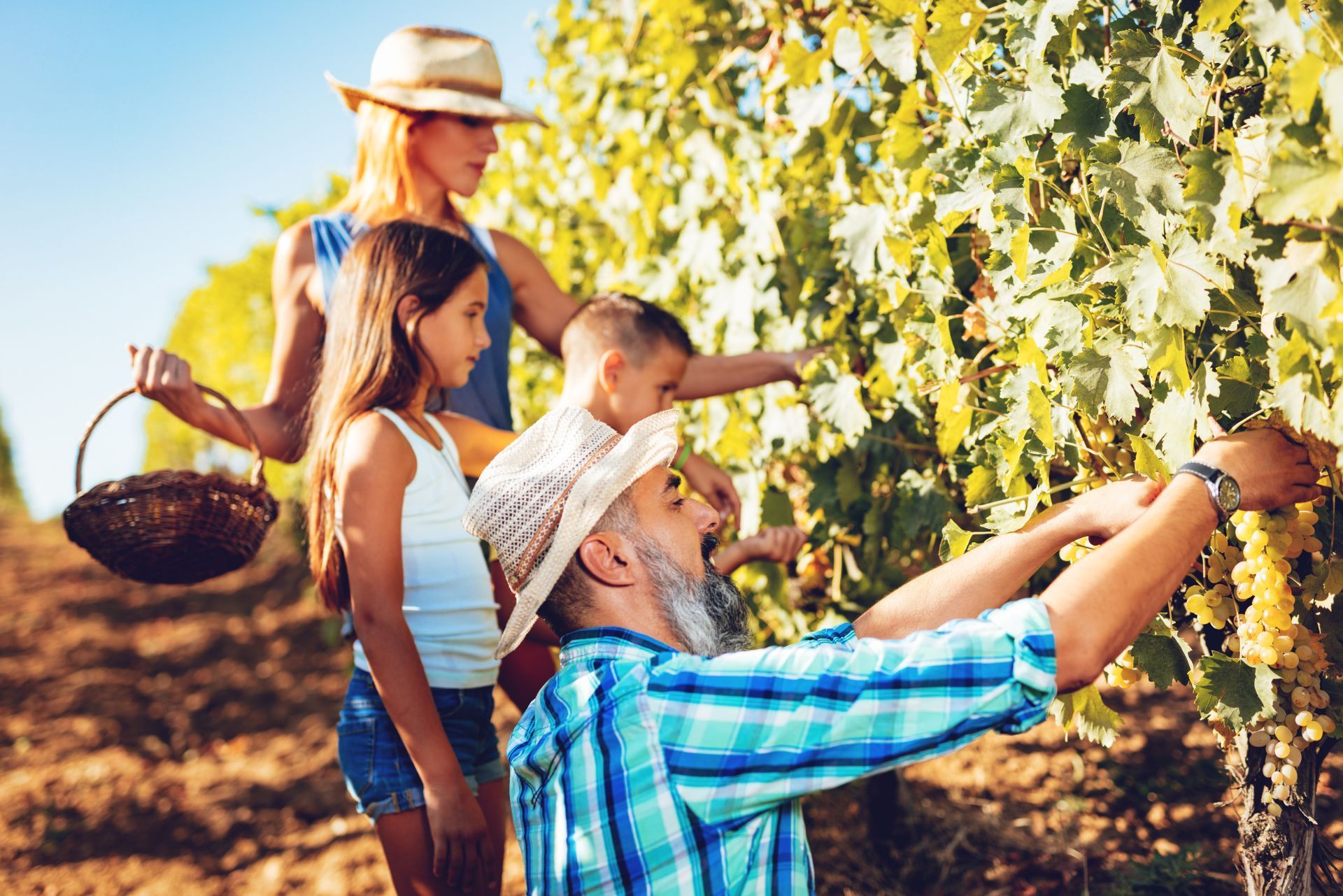
Top 3 Recommended Policies

Agritourism is a rapidly growing sector in Texas, blending agriculture and tourism to create unique experiences for visitors. As farms and ranches open their doors to the public, the need for specialized insurance becomes paramount. Texas agritourism insurance is designed to protect both the business and its patrons from potential risks. This article will explore the intricacies of agritourism insurance in Texas, including its importance, coverage options, and how to choose the right policy.
Understanding Agritourism
Agritourism encompasses a wide range of activities that allow visitors to engage with agricultural practices. From pumpkin patches and corn mazes to winery tours and farm stays, agritourism offers a unique way for people to connect with the land and learn about farming. This burgeoning industry not only provides supplemental income for farmers but also promotes local produce and sustainable practices. By bridging the gap between producers and consumers, agritourism fosters a deeper appreciation for the hard work that goes into food production and encourages more mindful consumption.
The Growth of Agritourism in Texas
Texas is home to a diverse agricultural landscape, making it an ideal location for agritourism. The state's vast size and variety of climates allow for a multitude of agricultural products, from cattle ranching to vineyards. In recent years, many farmers have diversified their operations by incorporating tourism elements, leading to a significant increase in agritourism ventures. This transformation has not only revitalized struggling farms but has also attracted a new generation of farmers who are eager to share their passion for agriculture with the public.
According to the Texas Agritourism Association, the state has seen a steady rise in visitors seeking authentic farm experiences. This growth not only benefits farmers but also contributes to local economies, creating jobs and promoting tourism in rural areas. Events such as harvest festivals, farm-to-table dinners, and educational workshops have become increasingly popular, drawing in crowds eager to learn about sustainable practices and the origins of their food. Moreover, these events often feature local artisans and craftspeople, further enriching the community and creating a vibrant marketplace for visitors to explore.
Benefits of Agritourism
Agritourism offers numerous benefits, both for farmers and visitors. For farmers, it provides an additional revenue stream, helping to offset the financial challenges of traditional agriculture. It also allows farmers to educate the public about their practices, fostering a greater understanding of food production and sustainability. By engaging with visitors, farmers can share their stories, highlight the importance of biodiversity, and promote the use of eco-friendly farming techniques. This not only strengthens the bond between consumers and producers but also encourages the adoption of sustainable practices across the industry.
For visitors, agritourism offers a chance to experience the rural lifestyle, enjoy fresh produce, and participate in hands-on activities. This connection to the land can be both educational and enjoyable, making it a popular choice for families and tourists alike. Many agritourism sites offer interactive experiences such as fruit picking, animal feeding, and cooking classes that emphasize the farm-to-fork journey. These immersive activities not only provide entertainment but also instill a sense of responsibility towards the environment and a greater appreciation for the agricultural community. As visitors leave with fresh produce and newfound knowledge, they often become advocates for local farming, further supporting the agritourism movement and its positive impact on the economy and environment.

The Importance of Agritourism Insurance
As agritourism continues to grow, so does the necessity for comprehensive insurance coverage. Agritourism insurance is crucial for protecting both the business and its patrons from potential liabilities. Without adequate coverage, farmers risk losing their livelihood due to unforeseen accidents or incidents.
Common Risks in Agritourism
Operating an agritourism business comes with inherent risks. Visitors may encounter various hazards, from slips and falls to accidents involving farm equipment. Additionally, animals can pose risks, as they may behave unpredictably. Understanding these risks is essential for farm owners to ensure they have the right insurance coverage.
Moreover, weather-related events can impact agritourism operations. Floods, droughts, or severe storms can lead to property damage or loss of crops, further emphasizing the need for robust insurance policies that cover natural disasters. The unpredictability of weather patterns means that farmers must be prepared for any eventuality, and having the right insurance can be the difference between recovery and financial ruin.
Legal Requirements and Regulations
In Texas, agritourism operators must comply with specific legal requirements and regulations. While general liability insurance is not mandated by law, it is highly recommended. Additionally, some local governments may have their own regulations regarding safety and insurance for agritourism businesses.
Understanding these requirements is crucial for ensuring compliance and protecting against potential lawsuits. Agritourism insurance can help mitigate legal risks and provide peace of mind for business owners. Furthermore, engaging with local agricultural and tourism boards can provide valuable insights into best practices and emerging regulations, allowing operators to stay ahead of any changes that may affect their business. This proactive approach not only enhances safety but also builds trust with visitors, who are increasingly looking for secure and responsible agritourism experiences.
Types of Coverage Available
When it comes to agritourism insurance, several types of coverage are available. Each type serves a different purpose and can be tailored to meet the unique needs of an agritourism business.
General Liability Insurance
General liability insurance is a fundamental coverage option for agritourism businesses. It protects against claims arising from bodily injury or property damage that may occur on the premises. For instance, if a visitor slips and falls while exploring a farm, this insurance can cover medical expenses and legal fees.
This type of insurance is essential for safeguarding against the financial repercussions of accidents and ensuring that the business can continue operating without significant financial strain. Additionally, it can provide peace of mind to business owners, allowing them to focus on enhancing the visitor experience rather than worrying about potential liabilities.
Property Insurance
Property insurance covers physical assets, including buildings, equipment, and inventory. For agritourism businesses, this coverage is vital, as it protects against damage from fire, theft, vandalism, or natural disasters. Given the outdoor nature of many agritourism activities, having property insurance can help mitigate potential losses.
Farmers should carefully assess the value of their property and equipment to ensure they have adequate coverage. Regular evaluations can help adjust policies as the business grows or changes. Furthermore, property insurance can also extend to cover crops and livestock, which are often the backbone of agritourism ventures. This comprehensive approach ensures that all aspects of the business are protected, allowing owners to recover more swiftly from unforeseen events.
Workers' Compensation Insurance
If an agritourism business employs staff, workers' compensation insurance is essential. This coverage provides benefits to employees who may be injured while performing their job duties. In Texas, businesses with more than one employee are required to carry workers' compensation insurance.
Having this insurance not only protects employees but also shields the business from potential lawsuits related to workplace injuries. It fosters a safer work environment and demonstrates a commitment to employee well-being. Moreover, this coverage can also include provisions for rehabilitation and retraining, which can be invaluable for employees recovering from serious injuries, helping them reintegrate into the workforce more smoothly.
Choosing the Right Insurance Policy
Selecting the right agritourism insurance policy can be a daunting task. With various options available, it is crucial for business owners to carefully evaluate their needs and seek expert advice when necessary.
Assessing Your Risks
The first step in choosing an insurance policy is to assess the specific risks associated with the agritourism business. This includes understanding the types of activities offered, the number of visitors, and the overall operation of the farm. By identifying potential hazards, owners can better determine the level of coverage required.
Consulting with an insurance agent who specializes in agritourism can provide valuable insights. They can help identify gaps in coverage and recommend appropriate policies to address specific needs. Additionally, it's important to consider seasonal fluctuations in visitor numbers and how they might impact risk exposure. For example, during peak harvest season, the likelihood of accidents may increase, necessitating higher coverage during those months.
Comparing Policies and Providers
Once the risks have been assessed, it is essential to compare different insurance policies and providers. Each insurance company may offer varying coverage options, limits, and premiums, so it is vital to shop around. Look for providers with experience in agritourism insurance, as they will better understand the unique challenges faced by this industry.
Reading customer reviews and seeking recommendations from fellow agritourism operators can also provide insights into the reliability and service quality of different insurance companies. Furthermore, consider the claims process of each provider; a company with a reputation for efficient claims handling can make a significant difference during stressful times. It may also be beneficial to inquire about any discounts for bundling policies or for implementing safety measures on the farm, as this can lead to substantial savings.
Understanding Policy Terms and Conditions
Before finalizing an insurance policy, it is crucial to thoroughly read and understand the terms and conditions. Pay close attention to coverage limits, deductibles, and any exclusions that may apply. Understanding these details can help prevent surprises when filing a claim.
Don’t hesitate to ask questions or seek clarification on any aspects of the policy that are unclear. A reputable insurance agent will be happy to explain the details and ensure that the policy aligns with the business's needs. Additionally, it may be wise to review the policy annually or whenever significant changes occur in the business, such as adding new attractions or expanding operations. This proactive approach ensures that coverage remains adequate and that the business is protected against emerging risks that may not have been previously considered.
Cost Considerations
The cost of agritourism insurance can vary significantly based on several factors. Understanding these factors can help business owners budget appropriately and find the best coverage for their needs.
Factors Affecting Insurance Premiums
Several factors influence the cost of agritourism insurance premiums. These include the size of the operation, the types of activities offered, the number of visitors, and the location of the business. Higher-risk activities, such as those involving animals or heavy machinery, may result in higher premiums.
Additionally, the claims history of the business can impact premiums. A business with a history of frequent claims may face higher rates, while those with a clean record may benefit from lower premiums.
Moreover, the geographical location plays a crucial role in determining insurance costs. For example, businesses situated in areas prone to natural disasters, such as floods or wildfires, may incur higher premiums due to the increased risk of property damage. Similarly, local regulations and legal environments can also affect the cost of insurance, as areas with stricter liability laws may lead to higher premiums to cover potential legal claims.
Budgeting for Insurance
When budgeting for agritourism insurance, it is essential to consider not only the premiums but also potential out-of-pocket expenses, such as deductibles. Business owners should allocate a portion of their budget to insurance to ensure they have adequate coverage in place.
It may also be beneficial to review insurance costs annually and make adjustments as necessary. As the business grows or changes, insurance needs may evolve, requiring updated coverage options. Additionally, seeking advice from an insurance broker who specializes in agritourism can provide valuable insights into the best policies available, ensuring that business owners are not only compliant with local laws but also protected against unforeseen events. Engaging in risk management practices, such as implementing safety protocols and training staff, can also lead to lower premiums over time, contributing to a more sustainable financial model for agritourism operations.

Maintaining compliance with insurance requirements and staying informed about industry trends is crucial for agritourism operators. Regularly reviewing insurance policies and understanding changes in regulations can help ensure continued protection. Additionally, being proactive in these areas can not only safeguard the business but also enhance its reputation among customers who value safety and reliability.
Regular Policy Reviews
Conducting regular policy reviews is essential for ensuring that the insurance coverage remains adequate as the business evolves. Changes in operations, new activities, or an increase in visitors may necessitate adjustments to the policy. For instance, if an agritourism operator decides to introduce a new activity, such as a corn maze or farm-to-table dining experiences, they must evaluate how these additions impact their risk profile and insurance needs.
Engaging with an insurance agent periodically can help identify any changes in coverage needs and ensure that the business is adequately protected against potential risks. Furthermore, operators should consider documenting all changes and updates to their business practices, as this information can be invaluable during policy reviews or when filing claims. Keeping a detailed log of incidents, visitor feedback, and operational changes can also provide insights that help in negotiating better terms with insurers.
Staying Updated on Industry Trends
The agritourism industry is continually evolving, with new trends and regulations emerging regularly. Staying informed about these changes can help business owners adapt and thrive in a competitive market. For example, the rise of eco-tourism and sustainable practices has led many agritourism operators to incorporate environmentally friendly initiatives into their offerings, which not only attract a broader audience but also align with modern consumer values.
Joining industry associations, attending workshops, and networking with other agritourism operators can provide valuable insights and resources. These connections can also foster collaboration and innovation within the industry. Additionally, subscribing to industry publications and following relevant online forums can keep operators abreast of best practices, emerging technologies, and consumer preferences. Engaging with social media platforms dedicated to agritourism can also serve as a dynamic space for sharing experiences and strategies, ultimately contributing to a more informed and resilient agritourism community.
Conclusion
Texas agritourism insurance is a critical component of operating a successful agritourism business. With the right coverage, farmers can protect their livelihoods while offering unique experiences to visitors. Understanding the various types of coverage available, assessing risks, and choosing the right policy are essential steps in ensuring comprehensive protection.
As the agritourism industry continues to grow, staying informed and compliant is vital for success. By prioritizing insurance needs and adapting to industry trends, agritourism operators can navigate the challenges of this dynamic field while providing memorable experiences for their guests.
Contact Us

